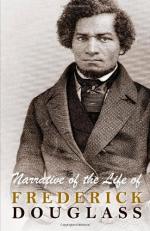|
This section contains 5,978 words (approx. 20 pages at 300 words per page) |

|
SOURCE: Bennett, Michael. “Anti-Pastoralism, Frederick Douglass, and the Nature of Slavery.” In Beyond Nature Writing: Expanding the Boundaries of Ecocriticism, edited by Karla Armbruster and Kathleen R. Wallace, pp. 195-210. Charlottesville: University Press of Virginia, 2001.
In the following essay, Bennett discusses Douglass's Narrative as an antipastoral text that privileges the freedom associated with urban spaces over the rural areas linked to the worst abuses of plantation slavery.
If we separate the term “ecocriticism” into its two components, its parameters seem clear: “criticism,” engaging in analytical reading practices, and “ecological,” focusing these practices on environmental concerns. In theory, then, ecocriticism could be applied to any cultural artifact since every cultural text issues from, and envisions, a particular relationship with its environment. In practice, however, ecocriticism has tended to focus on the genre of nature writing, a designation usually reserved for essays about the two environments most removed from human...
|
This section contains 5,978 words (approx. 20 pages at 300 words per page) |

|


